5 things experts want you to know before buying a hot tub
A hot tub is a big investment, so you need to make the right choice

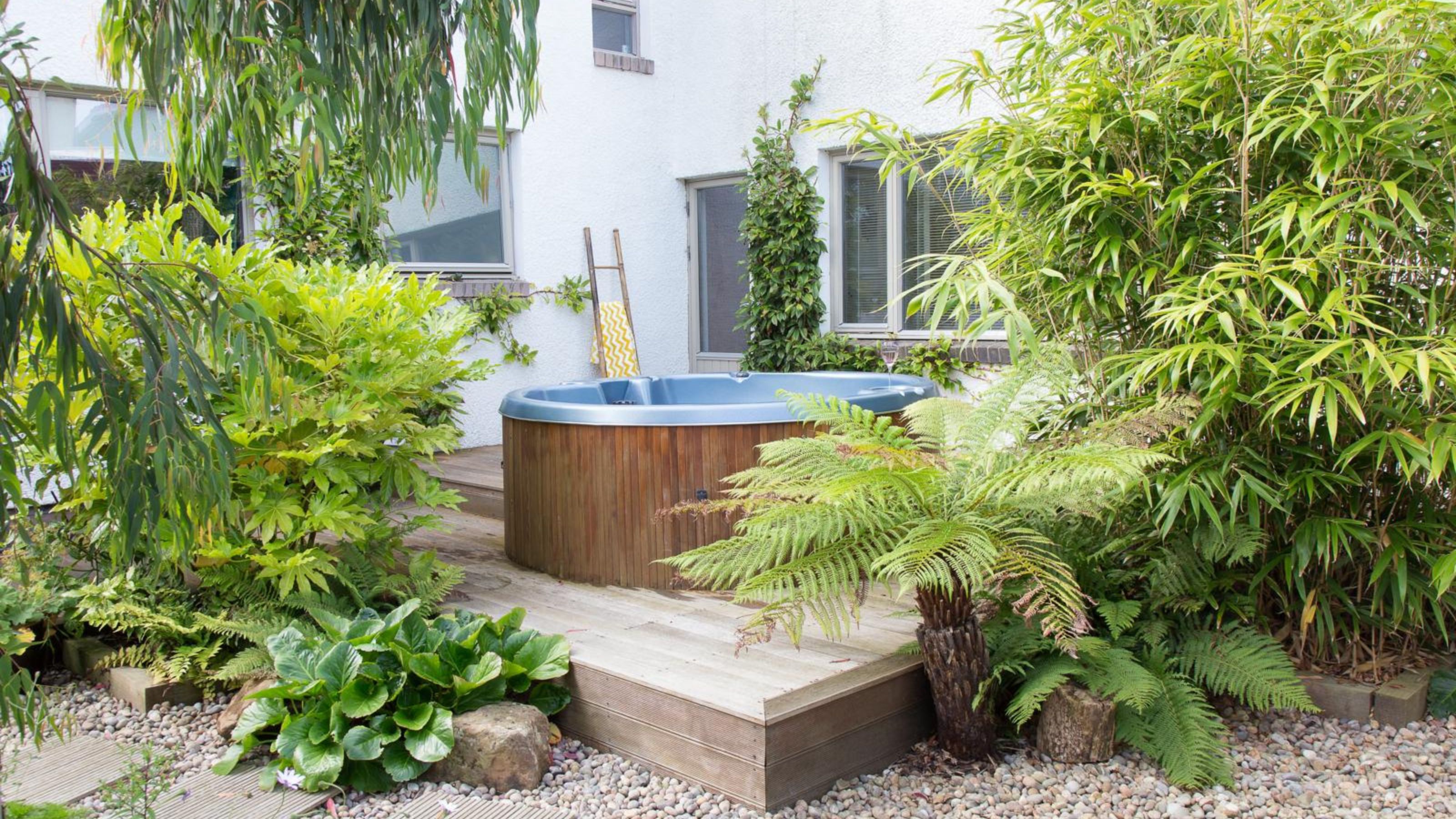
Sign up to our newsletter for style inspiration, real homes, project and garden advice and shopping know-how
You are now subscribed
Your newsletter sign-up was successful
Thinking of buying a hot tub? We don’t blame you. Being able to jump in a hot tub at the end of the day is something that many people dream of, no matter whether they’re looking to create the ultimate party zone or a zen chill-out spot.
Of course, the best hot tubs are ready and waiting to be snapped by those looking to steam up their garden ideas - but buying a hot tub on a whim isn’t always the best idea. With so many makes, models, styles, and functionalities on the market, buying a hot tub is something that needs careful consideration and thought.
Because of this, we’ve spoken to hot tub experts and asked them to share the things every potential hot tub owner should know before buying a hot tub. And when you get to the end of this guide, you should know exactly what to look for when looking out for any hot tub deals.
Things you should know before buying a hot tub
A hot tub is a big investment, which is why you need to make sure that you’re choosing the right hot tub for your needs, your garden, and your budget. To help you choose the perfect hot tub, these are 5 things you should know before buying a hot tub.
1. Size really does matter
While it’s easy to buy a hot tub based on appearance alone, it’s important to analyse the specifications of the hot tubs you’re interested in before whipping out your credit card. This is especially true regarding size, as choosing the wrong size is a mistake that so many new hot tub owners make.
Andy Ellis, sauna and spa expert at Posh.co.uk, explains, ‘The two main considerations when looking at size are how many people will be using it and how big the garden is. The hot tub will need a flat base. Otherwise, the water will fall out. So, make sure to take accurate measurements of your garden beforehand to avoid disappointment.’
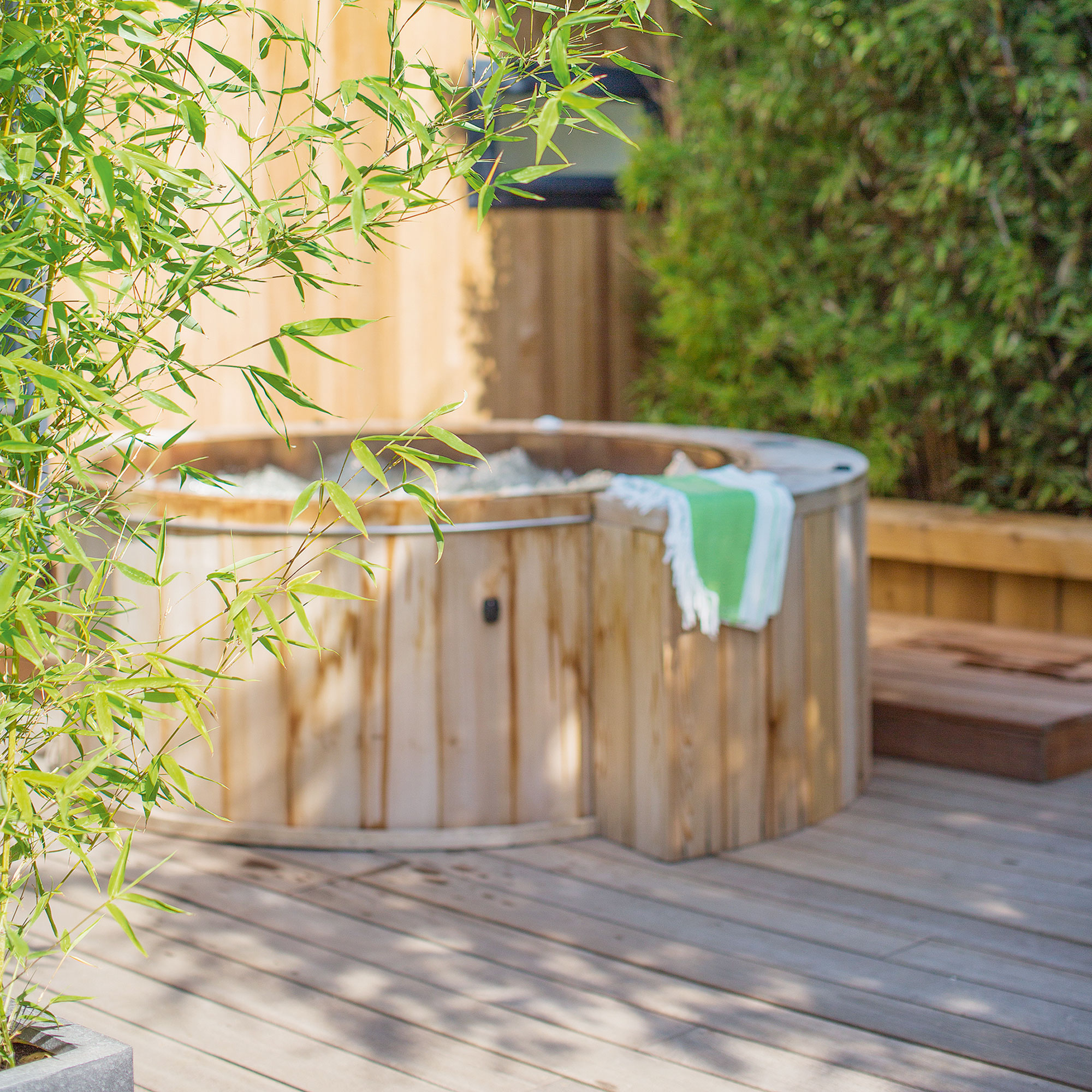
‘You’ll also want to make sure you have some extra room around the hot tub to get in and out safely, as well as having space to carry out maintenance.’
Sign up to our newsletter for style inspiration, real homes, project and garden advice and shopping know-how
Because of this, it’s important to weigh up your hot tub dreams with your reality before opting for the biggest option on the market. You should work out where you want to place it (for example, on a patio or as part of as hot tub decking idea) and choose a size that works with that space.
The last thing you want is to overpower your small garden with a giant hot tub that gets in the way.
2. The material makes a big difference
The best hot tubs on the market today can typically be split into two different categories: inflatable hot tubs and rigid hot tubs. Both material types have their positives and negatives in terms of use and affordability, but it’s important to do your research before setting your heart on one specific hot tub.
Andy says, ‘Plastic, inflatable hot tubs are generally the cheapest on the market for those wanting to enjoy luxury on a budget. However, they can be more prone to small tears.’
‘Other options include wooden and acrylic hot tub shells to enjoy comfort in style. Many of these include jet blasts, enhanced heating functions and a hydrotherapy massage.’
Of course, these hot tubs are typically more expensive. With this in mind, it’s always a good idea to settle on a budget before starting your hot tub search so you can figure out which type of hot tub suits your budget.
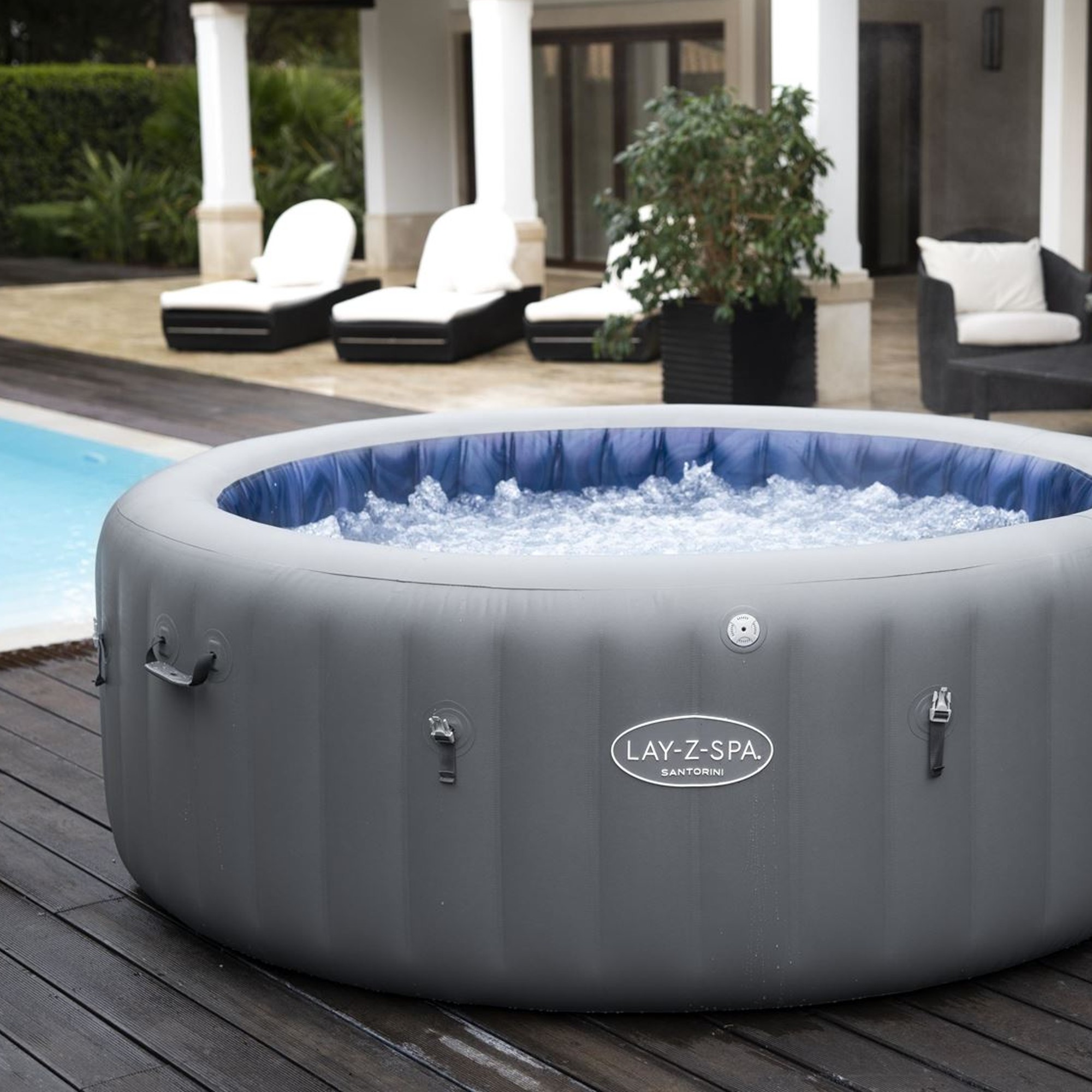
3. Maintenance is key (but comes at an extra cost)
If you’re thinking of buying a hot tub, there are certain things that you need to consider. You need to think about the cost of running a hot tub, how the hot tub will affect your water bill, and how much it will cost you to maintain a hot tub.
In fact, Karl Bantleman from Direct365 wishes more people understood how important it is to regularly test the water in their hot tubs and keep them clean.
He says, ‘Legionella is the waterborne bacteria that leads to Legionnaires’ disease, a form of pneumonia. The bacteria is known to live in hot water sources such as hot tubs and saunas and thrives in temperatures between 20-45°C or stagnant water systems.’
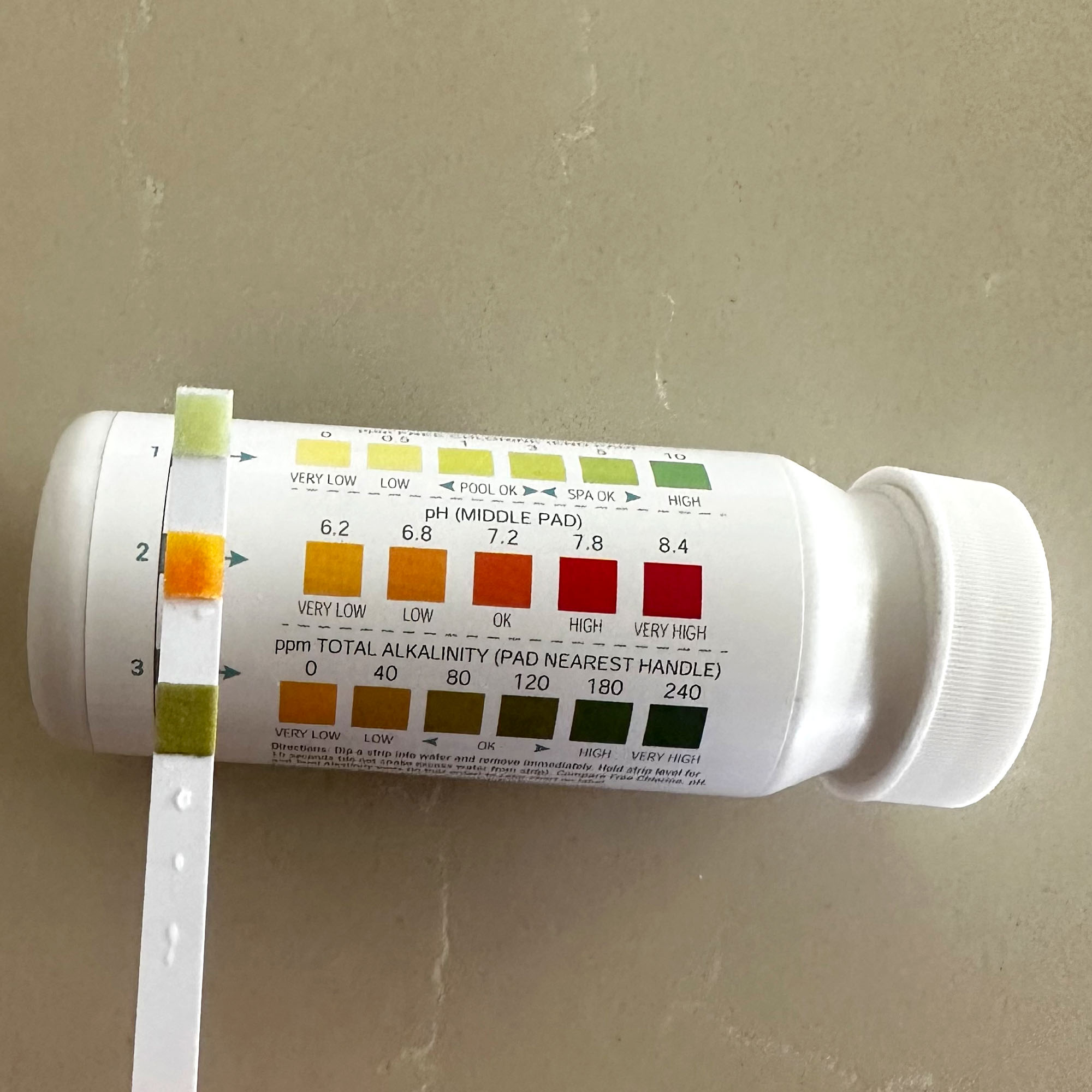
‘As legionella bacteria is airborne, the mist or vapour from a contaminated hot tub can cause both people in a hot tub and those in the vicinity of a hot tub to become ill. Regular testing not only ensures the health and safety of those using the hot tub but also helps maintain the overall cleanliness and longevity of your equipment.’
And while you may be worried about the price of this, Karl adds, ‘Proactive testing and maintenance are indeed much less costly and stressful compared to dealing with the ramifications of a legionella outbreak.’
Thankfully, maintaining your hot tub isn’t as hard (or as expensive) as it sounds. Angharad Wrigley, owner of Hot Tubs Rock, explains, ‘Maintenance will just become like second nature after a very short time, and you’ll even get pleasure from keeping your water absolutely pristine.'
‘It’s a quick weekly routine, and you empty the tub every three months. The overall cost depends on usage, but you can budget anywhere from £20 a month up to £50 a month to maintain your hot tub.’
4. Extra specs need to be considered
A hot tub is just a hot tub, right? Wrong. While many people know that they want to add a hot, bubbly pool to their garden, most people don’t understand that different hot tubs come with a variety of different features - and it’s very easy to choose one that doesn’t suit your wants and needs.
To help you figure out what you actually want, Angharad suggests asking yourself, ‘Is it for aches and pains, helping with sleep or mental health? To keep the children entertained, be sociable with friends and family, or just to spend more time outside and away from devices?’
Andy also adds, ‘The right hot tub for you depends greatly on what you’ll be using it for. If it’s for relaxing then it’s best to go for one which has features such as specialised massage seats for the ultimate comfort experience.’
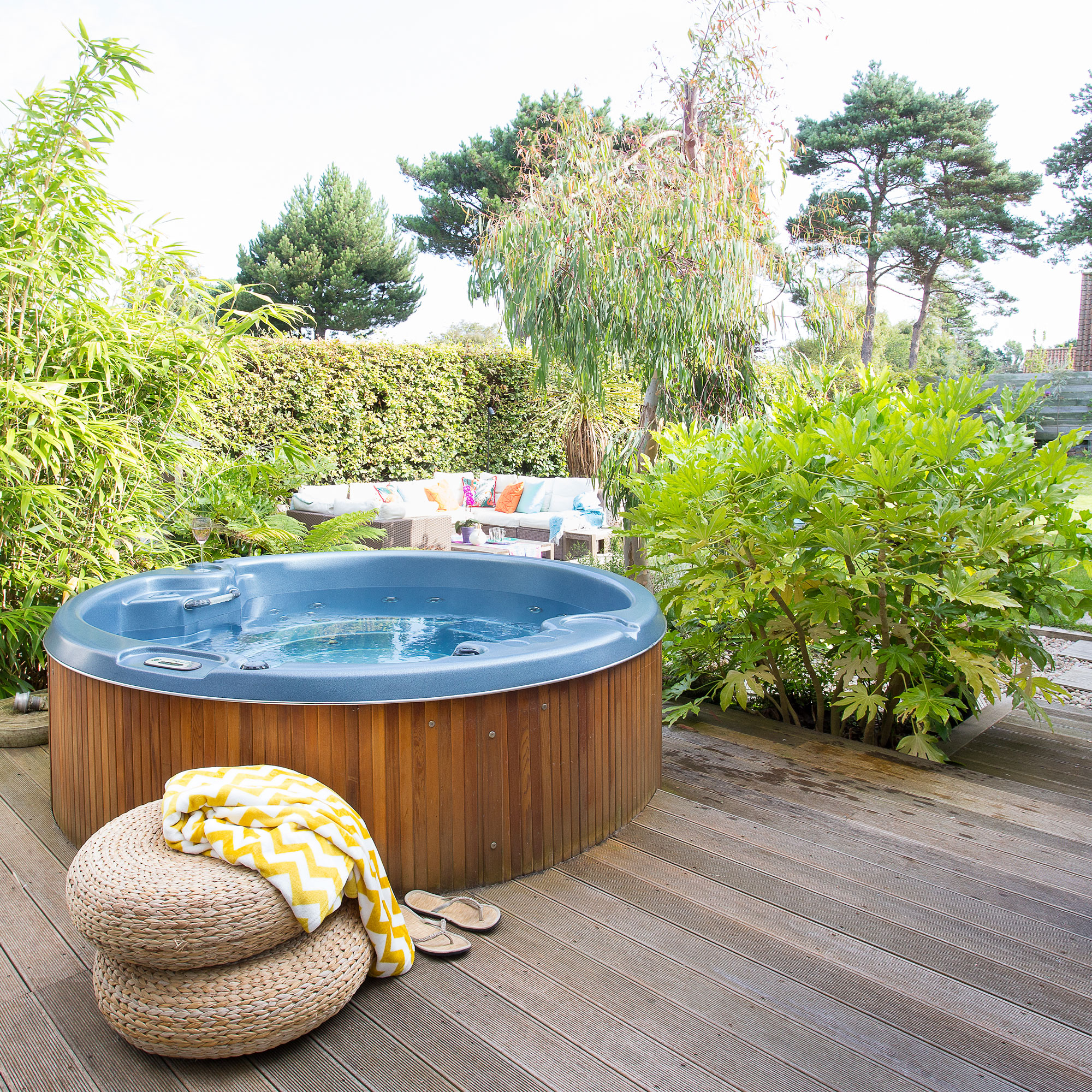
‘There’s also the filtration function, which can help save money and energy by reducing water wastage. These are typically used in high-end hot tubs, but they’re worth considering to save money in the long run.’
‘If you’re buying one for social functions then it’s worth getting tubs which have features such as Bluetooth connectivity, enhanced bubbles and LED colour-changing lights to fully impress your guests.’
Because of this, experts would suggest sitting down with your family to work out what you really want and need for your hot tub before buying one.
5. Some hot tub accessories are essential
The perfect hot tub experience isn’t just about the hot tub itself. When you’ve figured out why you want a hot tub, it may be that you also need to buy some accessories to bring these dreams to life. Of course, these will come at an extra cost. Some essential hot tub accessories include:
A hot tub cover: No matter where you choose to place a hot tub, a hot tub cover is essential in maintaining the quality of your hot tub. However, this is especially important if you are placing your hot tub underneath trees in your garden, as you want to prevent leaves and debris from falling into the hot tub at all costs. A hot tub cover will also help to prevent heat loss, which will save you money in the long run.
Hot tub steps: If you’re buying a hot tub for the whole family, hot tub steps are also a necessary purchase. This can help everyone from young children to elderly relatives get into the hot tub, preventing slips and falls. In some cases, however, you may find that steps are included in your hot tub purchase.
Hot tub pillows and headrests: While not an essential accessory, a hot tub pillow or headrest may benefit those who want to relax and unwind in a hot tub. These accessories are pretty affordable - even from top brands. In fact, this Lay-Z-Spa Pillow Set from Amazon is just £19.45. However, these need to be cleaned regularly and replaced every few years.
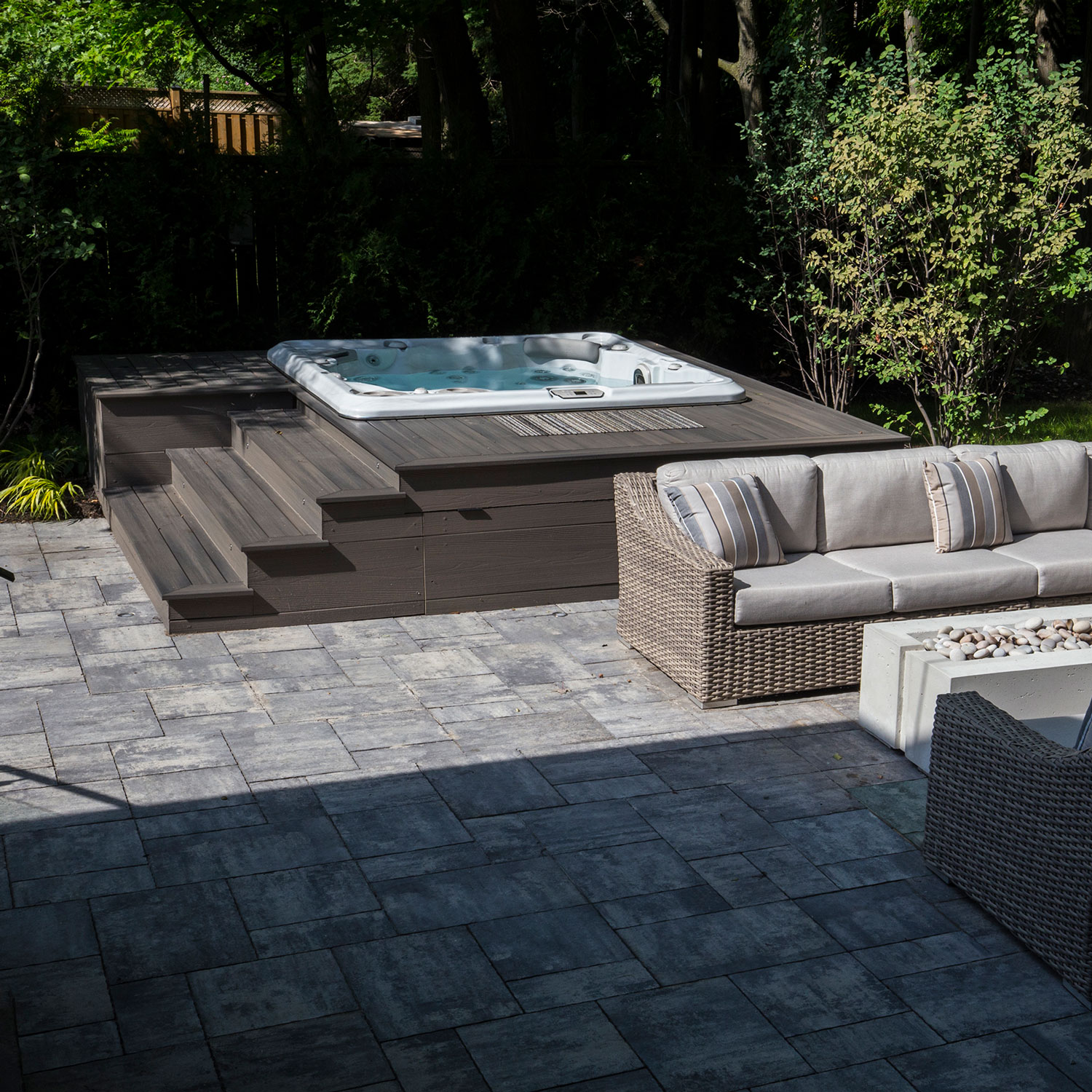
Our top picks
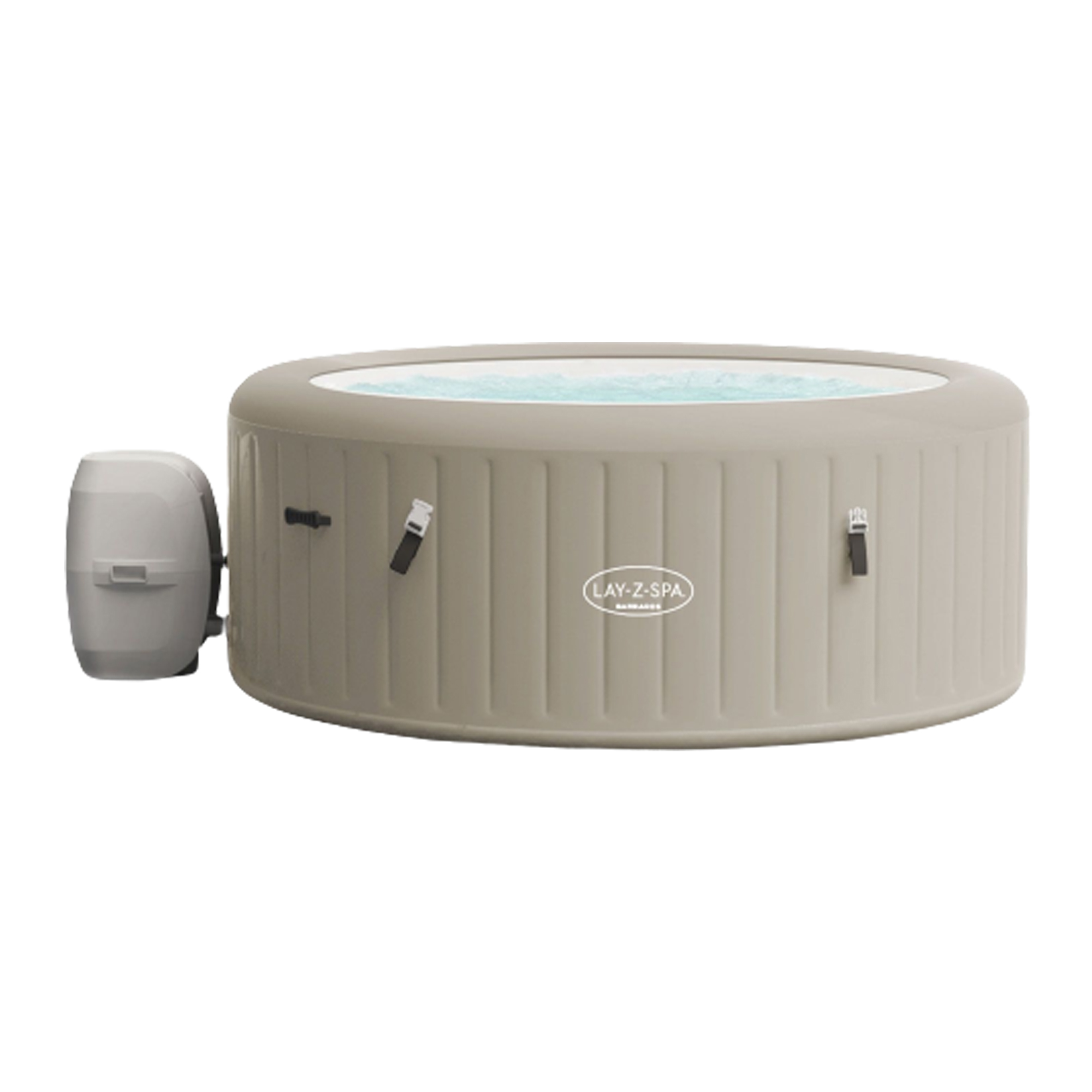
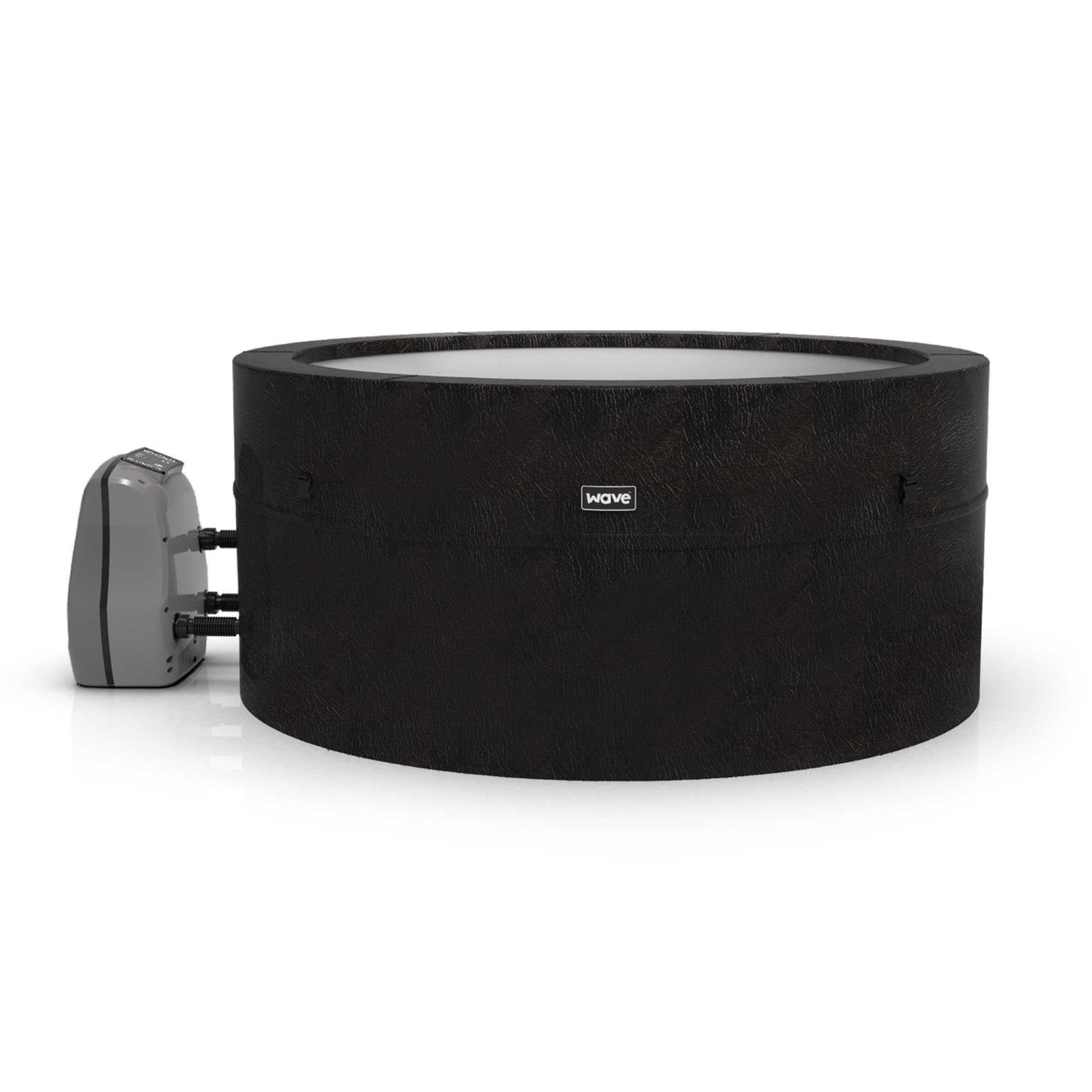
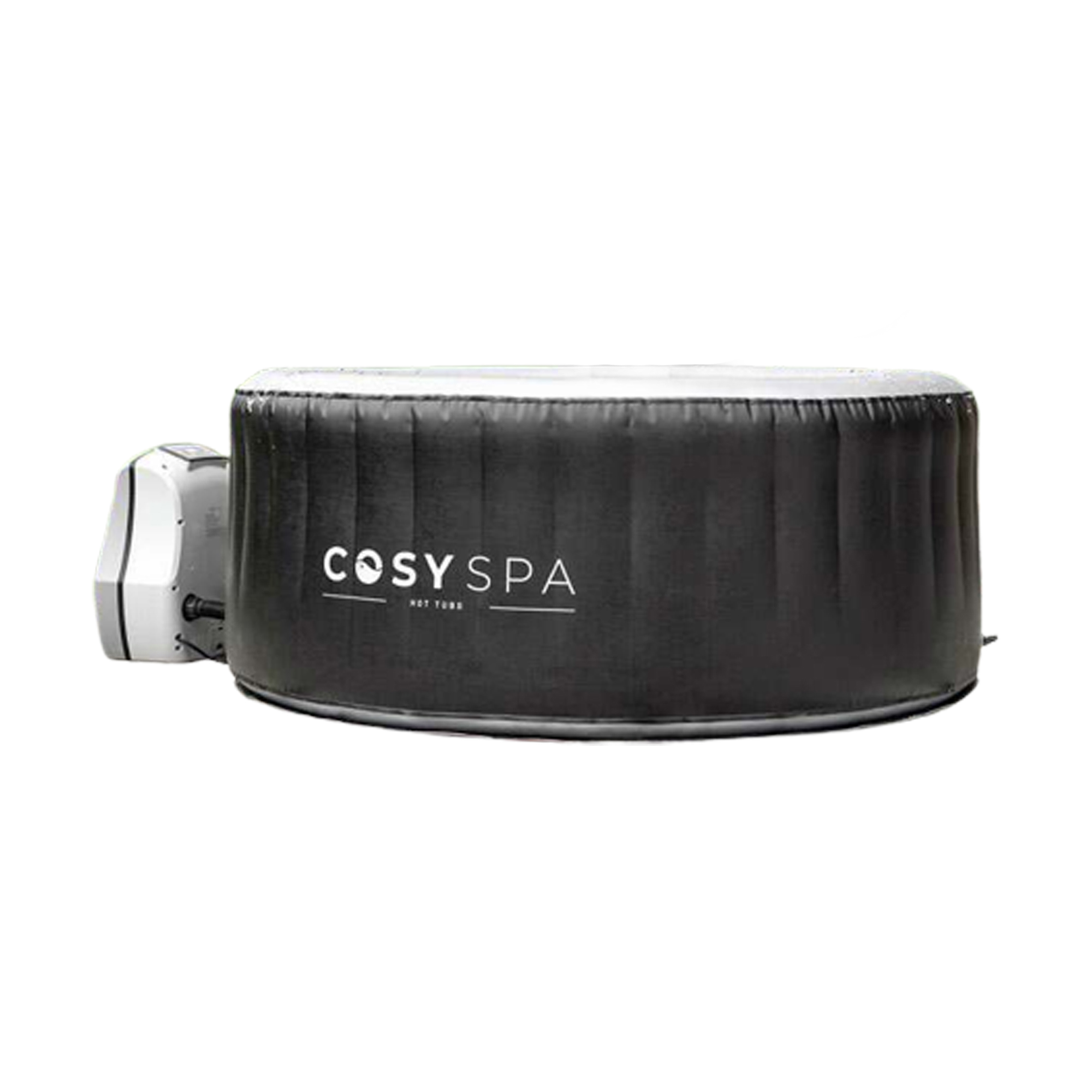
FAQs
What to do before getting in a hot tub?
Before jumping into your hot tub, there are a few things you should do to ensure it’s safe for you and your family to use. You should:
- Remove the hot tub cover.
- Test the temperature.
- Check the chemical balance.
- Check the filters.
- Inspect the hot tub for any damage.
- Make sure the steps are safe.
- Have a shower to remove dirt and body oils.
What do I need to know before installing a hot tub?
Before buying and installing a hot tub, you need to make sure that your garden is a suitable location for a hot tub. To get the most out of a hot tub, it needs to be placed on a flat surface, have easy access, and have nearby power, water, and drainage.
If you don’t have these things available, you’ll either need to rethink your decision or make changes to your garden to ensure it’s suitable.
What are the cons of owning a hot tub?
While many people love owning a hot tub, it’s important to realise that it’s an added cost to your monthly outgoings. As well as the initial price of the hot tub, you also need to pay for the maintenance in terms of buying filters and chemicals needed to keep the hot tub clean. You’ll also have to pay to fill the hot tub with water and use electricity to keep it powered up.
It’s also important to note that hot tubs are often seasonal purchases, too. While you can use them during the winter months, most people prefer to stay inside when the weather gets too cold for them.
Now you know everything you need to know before buying a hot tub, there’s only one thing to do. So, which one will you buy?

Lauren Bradbury has been the Content Editor for the House Manual section since January 2025 but worked with the team as a freelancer for a year and a half before that. She graduated with a Bachelor’s degree in English and Creative Writing from the University of Chichester in 2016. Then, she dipped her toe into the world of content writing, primarily focusing on home content. After years of agency work, she decided to take the plunge and become a full-time freelancer for online publications, including Real Homes and Ideal Home, before taking on this permanent role. Now, she spends her days searching for the best decluttering and cleaning hacks and creating handy how-to guides for homeowners and renters alike, as well as testing vacuums as part of her role as the Ideal Home Certified Expert in Training on Vacuums, having spent over 110 hours testing different vacuum models to date!